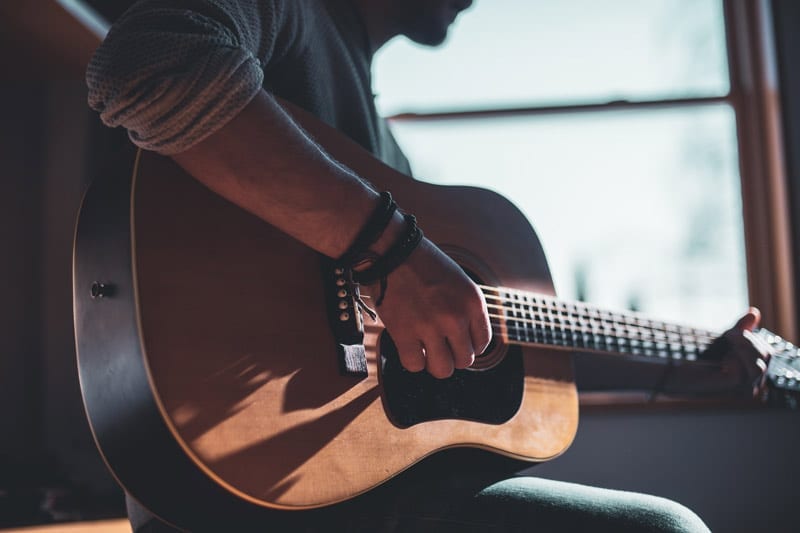Does your mind wander as aimlessly as mine? When you were preparing your dinner last night, were you really thinking about chopping those onions? Where were you mentally? If you’re like me, you were mulling over the ever-growing, ever-overflowing to-do list you keep track of in your head. Often I’m daydreaming about my fantasy vacation. Sometimes, I’m ruminating on how that jerk cut me off in traffic on the way home from work. But I’m never thinking about the onions. My mind bounces from task to task, concern to worry, plan to prediction, all the while not sparing a single thought to my physical actions. If I’m being honest, it’s a rare occasion that my brain and body are on the same page.
This sort of overthinking is a constant source of anxiety for myself and others. A perpetual flow of thoughts and emotions can become overwhelming and overpower one’s ability to focus on, and maybe more importantly, enjoy activities throughout the day. So, what’s a troubled soul such as myself to do about this mess?
I’m sure if you’re someone who decided to click on an article like this, you’re already at least somewhat familiar with the concept of “mindfulness.” I, like many others, have benefitted from establishing a mindfulness meditation practice. In case you have no idea what I’m talking about, mindfulness is exercising the ability to notice when you’ve been distracted by your own thoughts and bringing yourself back to present reality. In other words, it’s a sharpening of your attention. As I’d personally recommend finding out for yourself, meditation can be a reliable path to mindfulness. However, if you’re someone like me who has trouble sitting still for longer than 10 minutes at a time, there are other ways to sharpen your attention to the present. As I dove into the literature behind mindfulness, I discovered a more proactive approach to the concept.
Mihaly Csikszentmihalyi is a prolific writer and psychologist whose interviews and writings I’ve been digging into for the past couple of years. He has some insightful things to say about this phenomenon that he calls Flow. In his book by the same name, he tells us flow is “the way people describe their state of mind when consciousness is harmoniously ordered, and they want to pursue whatever they are doing for its own sake.”
Do you ever have those moments where all of your mental baggage just kind of disappears? It’s like, you didn’t realize you were constantly distracted by a torrent of peripheral information, and suddenly it’s gone. Maybe you’re working on solving a difficult puzzle. You’ve been at it for hours, but it only feels like a few minutes. You’re not thinking about all of the things you have to get done tomorrow or lamenting the time you farted in front of the class back in 7th grade. There’s just you and the task. That’s flow.
In theory, anything that attracts and holds an individual’s attention can induce a flow state. For some, it’s a game, for others a hobby, and, for those seeking mastery, it’s often their career. People can find these peak experiences while painting, baking, or playing video games. People operating at the top of their field, from professional athletes to rockstars, learn to reliably induce flow states to better “get in the zone.”
After learning about flow, I decided to put the theory to the test. I began by taking inventory of my various daily activities, beyond my routine grind. I looked at the things that I do for fun that require some level of skill. As a musician and songwriter, it was easy for me to begin with my art. The next day, before I sat down to write, I told myself that for the next hour or so, the writing was the only thing that mattered. There was no world outside of this task. The news didn’t exist. My job didn’t exist. My phone didn’t exist. There was only me and the task. I tried to convince myself that I didn’t need to produce anything. There was no goal to be met, other than engaging in the activity wholeheartedly.
After the hour passed, I didn’t feel like a suddenly enlightened being, but I did feel considerably less anxious. I won’t tell you that I wrote a symphony or reached new heights in my mastery of songwriting, but that wasn’t the point. If only for a moment, I was present. If only for that hour, I was content with my life. There was nothing to desire or regret.
The amazing feeling I experienced from finding my flow in songwriting led me to try a variety of things that I don’t think I would have otherwise. After that first experiment, I sought to fill my time with more flow-inducing activities. By taking that mission to heart, I’ve been able to spend more of my days doing the things that genuinely bring me joy, and less time being paralyzed by the anxiety of all the things I “should” be doing.
About the Author: Kane is a fledgling writer, part-time musician, and loud-mouthed activist from Dallas, Texas.
Photo by Jacek Dylag on Unsplash
The opinions and views expressed in this guest blog do not necessarily reflect those of www.rtor.org or its sponsor, Laurel House, Inc. The author and www.rtor.org have no affiliations with any products or services mentioned in this article or linked to herein.






This is interesting!
I studied flow theory at university, but I’ve never experienced it. Consciously, at least. Mindfulness is something that I find very hard to do. Even 15-20 minutes of concentration in practice is tiring me out. At the same time, I have a positive attitude towards meditation and try to give this activity half an hour several times a week.